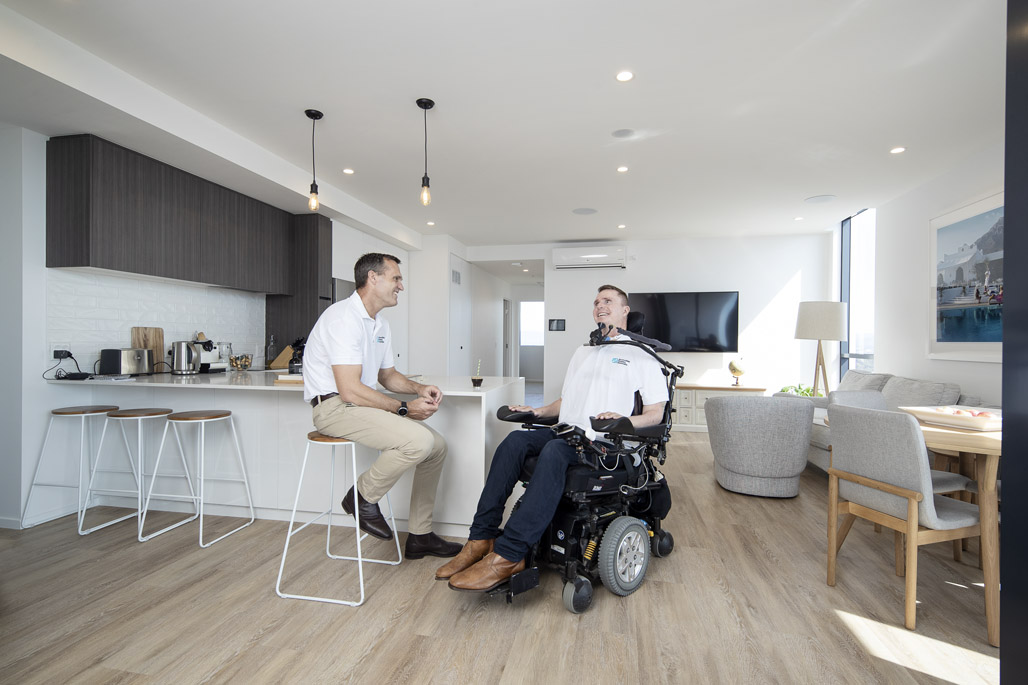A home is the key to a better lifestyle
As a disability support advocate, one of the things I’m most passionate about is finding ways to keep people with special needs connected to society. One of the ways we can achieve this is through sporting programs, which is why I founded the Sports Access Foundation. However, another vitally important, and currently under-resourced, source of social connection is appropriate housing.
That’s why I am inspired by the work Accessible Homes Australia (AHA) is doing to deliver more Specialist Disability Accommodation (SDA) for people with high supported living needs and mobility impairment. AHA works with eligible NDIS recipients to secure funding to create custom-built and modified homes, which play a hugely important role in helping people live independently.
A home close to everything
My disability has meant that I’ve made specific decisions about where I live to ensure I have easy access to shops and everyday services, as I am unable to drive. Fortunately, I don’t have the mobility challenges that some people face, and have been able to live independently in my home.
But what happens to those with mobility issues who want to make the move from the family home or, in some cases, an aged care facility, to live independently? There simply aren’t enough disability-friendly homes in Australia, so some people have to live in unsuitable accommodation long-term, or may be forced to move away from their social network to secure adequate housing.
With more SDA-approved providers entering the industry, such as AHA, more homes can be built or retro-fitted to meet people’s needs. Unfortunately, this isn’t happening quickly enough. Becoming an SDA provider is a time-consuming process, but it’s heartening to see AHA’s Perry, Tom and the team helping to change the landscape so more people can be kept safe and connected to others through housing in, or close to, their neighbourhood.
The freedom to be me
While having a place of your own is an important milestone for anyone, it’s an even bigger step for those who have a disability that requires assistance from others.
Imagine yourself as a 22-year-old who has recently graduated with a commerce degree. You’ve secured a job, but you still have to live at home with Mum and Dad, who help you move around the house in your wheelchair. This is because there is simply no accessible apartments to rent, nor do you have the funds to spend on extensive modifications.For a person in this situation, moving in to a modified home to live independently provides the opportunity to not only gain self confidence but to create their own lifestyle filled with the people they love, the places they like to go and the things they enjoy doing.
Many people don’t realise that having a disability can be socially isolating without the right support networks and resources in place. A home to call your own is one of the most important ways to help people find their place in our community.
For details on Sport Access Foundation and its current round of grants, visit https://www.sportaccessfoundation.org.au if you, a friend or a loved one has a disability and is currently living in inappropriate or unsuitable accommodation, get in touch with AHA.

